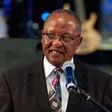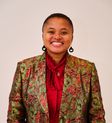
Foundation News
Africa Month, COVID-19 and our shared humanity: ubuntu in a time of crisis
“If a ninety-year-old may offer some unsolicited advice on this occasion, it would be that you, irrespective of your age, should place human solidarity, the concern for the other, at the centre of the values by which you live.”- Nelson Rolihlahla Mandela, 12 July 2008
As a Nelson Mandela legacy organisation with a Pan-African vision and community, The Mandela Rhodes Foundation is deeply concerned about the vulnerable position of marginalised African foreign nationals in South Africa during the Covid-19 lockdown. Millions of people in South Africa were already subsisting on or below the breadline, and the lockdown has made even survivalist economic activity impossible. Key players across all sectors have mobilised on an unprecedented scale to mitigate the harm through relief funds for businesses, the provision of shelter and food parcel schemes, and by increasing the amounts of existing social grants. This collective action must be acknowledged, and encourage us to realise that we can come together as South Africans despite our differences to achieve significant impact. Despite these efforts, the need sadly still far outstrips the resources that have been made available. This calls for those of us who still have more than enough to make additional resources available towards helping to alleviate the suffering of those on the margins.
African foreign nationals in South Africa, being non-citizens, have found it difficult to qualify for a majority of the existing relief measures. There have even been reports of homeless people being turned away from shelters because they are not South African. The TERS scheme is open to foreign nationals in South Africa, but they must be “legally documented and legally employed.” Well-intended efforts to help the poor and marginalised in South Africa are thus excluding an extremely vulnerable population in our country: refugees, asylum seekers and undocumented migrants from African countries outside our borders. As noted in The Mandela Rhodes Foundation’s definition of the principle of reconciliation, the commitment to human reconciliation means seeking to make a contribution to freedom, peace and prosperity for all human beings, never to the exclusion of any category of humanity. We as South Africans therefore need to reflect more deeply on how we can create space for all marginalised peoples in our country.
For many years, South Africans have blamed African foreign nationals for various problems in our society, and sometimes actively and violently persecuted them. Today, marginalised foreign nationals are being overlooked in the fight against Covid-19. Asylum seekers, refugees, and undocumented migrants have lost their income due to the lockdown, and with limited access to relief measures they are facing eviction and hunger. Both of these ways of treating Africans from outside our borders result in dehumanisation: either actively othering them, or passively allowing their dignity to be eroded by not providing for their most basic needs. Both of these approaches are only possible if we believe that nationality – a trait as arbitrarily allocated among human beings as race or gender – can be used as metric for the value of human life, or as a way of deciding who deserves to have their human rights realised.
Umntu ngumtu ngabantu is an African philosophy, way of being, and a moral principle. It is often summarised in translation as “I am because we are,” but can be understood to mean that “a person is a person through other persons.” A person becomes a person in the full sense of the word, through other people. Living in harmony with others, and acting in the benefit of the collective, are pathways to personhood. Ubuntu acknowledges our shared humanity and our interconnectedness. An injury to one person is an injury to all persons. We are collectively responsible for one another’s wellbeing.
The Coronavirus crisis is a reminder of this lesson on a global scale. Covid-19 does not respect the borders of countries, and the wealthy and influential are not immune. Regardless of race, religion, class, or nationality, people across the world are gravely ill. The virus reminds us that we are all equally human in our mortality, and that we are interconnected and interdependent. We have to work together to keep each other safe: this is a truth as old as the very first human societies. Responding effectively to the crisis essentially requires that we practice what an ethic of Ubuntu has always invited us to practice, and that we practice it at multiple levels.
Interpersonally, it means washing or sanitising our hands regularly, practicing social distancing and wearing masks in public. Every individual must try to do this, or it will not work – we are all responsible for each other’s safety. At the societal level, we have to acknowledge that socioeconomic factors do matter. The very poor are disproportionately at risk due to crowded living conditions, insufficient public sanitation amenities, and a burden of existing disease. The Coronavirus shows us with urgency that everyone needs access to clean water; everyone needs a safe place to sleep, and that extremely crowded informal settlements are not sustainable housing solutions that provide dignity. This has always been true, and the inequality in our society has been a continuing source of pain for all those who hold the value of Ubuntu, and who hope for freedom from suffering and equality of opportunity to be achieved. Marginalised African foreign nationals, refugees, and asylum seekers within our borders at this time must be included in these solutions on the basis of our common humanity – our shared personhood.
As an organisation, we have decided to reallocate some of our funds to supporting vulnerable African foreign national households during this time of crisis. We have mobilised our network of over 450 alumni from 26 African to this end. Alumni were invited to nominate foreign national households in South Africa in need of urgent help, and donate monetarily where possible, in order to makes collective funds available to provide supermarket vouchers that can be used for food, electricity, data, or toiletries. Our efforts have reached marginalised households from 16 African countries who are currently in South Africa. We do this in the firm belief that we are indeed all each other’s keepers, and that the value of human solidarity and Ubuntu espoused by our Founding Patron Mr Mandela can lead the way to a more humane world.
As we commemorate Africa Month this year, let us remember tales from African folklore that provide us with guidance on how we should be towards our African brothers and sisters in South Africa during this pandemic and beyond. When a stranger unknown to the village arrived parched and in need of food and shelter, the people of that land did not require identity documentation before doing the right thing. Instead the traveler was received as a fellow human being and taken into refuge to rest and recover.
Decades ago, it was our African brothers and sisters who took our freedom fighters in when they had to escape the atrocities of the apartheid government and go into exile. We as South Africans can therefore no longer remain insular in how we engage with our fellow Africans. Now is the time for us to step into collective leadership to develop the systems, structures and solidarity that ensure African foreign nationals in South Africa can be recognized and integrated into our social sphere. What is called for is no less than rebuilding our communities, societies, and world in ways that acknowledge our shared humanity and our interdependence. African societies have long been based on collectivist ethics. The coronavirus pandemic is an invitation for us as Africans to come home to our own ways of being, to remember something we have always known, and turn it into our greatest strength as humanity faces this momentous challenge.
“The values of human solidarity that once drove our quest for a humane society seem to have been replaced, or are being threatened, by a crass materialism and pursuit of social goals of instant gratification. One of the challenges of our time, without being pietistic or moralistic, is to re-instill in the consciousness of our people that sense of human solidarity, of being in the world for one another and because of and through others.” Nelson Mandela, 10 September 2004
Professor Njabulo S. Ndebele is a renowned academic, writer and thought leader. Judy Sikuza is a leadership and organisation development specialist. They are respectively the Chairperson and Chief Executive Officer of The Mandela Rhodes Foundation, Nelson Mandela’s official legacy organisation that aims to build exceptional leadership capacity in Africa.
This article was first published on Daily Maverick.









